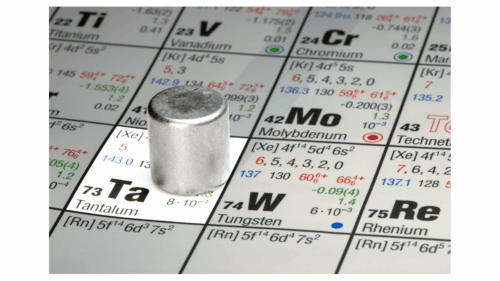When Wagner Machine Company started 45 years ago as a general machine shop, we were young, excited, and ready to tackle any project that came through the door. And because we’re located in the same town as the famous University of Illinois Urbana-Champaign, we quickly found ourselves taking on unique projects from university researchers.
These often involved machining exotic materials we weren’t familiar with—sometimes even new, custom materials that had never been commercially machined anywhere. Some shops might have said no, but as a young team eager to prove ourselves, we embraced the challenges.
That mindset became part of our identity. Today, we’re equipped with the processes, approach, and equipment to manufacture parts from virtually any material a customer requests, even if we’ve never machined it before. In fact, in the past year alone, we’ve successfully machined three exotic materials that were entirely new to our CNC machine shop.
Learn our systematic approach to unfamiliar materials, and find out why our process makes us a trusted partner for even your most complex projects with exotic materials.
What Are Exotic Materials?
In the world of CNC precision machining, “exotic material” refers to metals, plastics, laminates, and ceramics with unique properties that are well suited to demanding applications. Common attributes include extreme heat resistance, corrosion-resistance, wear resistance, or high strength-to-weight ratios.
Machining exotic materials is often difficult, requiring specialized tooling and precise techniques. Some are abrasive and wear down tools, for instance, while others can be gummy and difficult to cut. Each presents a unique learning curve for a machine shop.
Our Systematic Approach to Unfamiliar Materials
With projects involving a new or uncommon material, we often approach the process in several stages to ensure we manufacture complex machined parts with precision and efficiency.
Stage 1: Conduct Research and Reference Internal Documentation
The first step when working with any unfamiliar material is always research. That might mean diving into technical resources, consulting tooling experts, or drawing from extensive internal experience with similar materials. Over the years, we’ve developed our own machining references on materials such as titanium, Inconel, molybdenum, tantalum, and more.
Stage 2: Testing and Process Development
When we’re machining a new material, we never order just enough to make the parts. Instead, we purchase additional stock specifically for testing. Our machinists experiment with feeds and speeds, tool types, machining methods, and more until we’re confident in the results.
For example, one of our machinists recently spent several days testing a newly developed tungsten based material, recording the impact of different tool paths and speeds to determine what would deliver the best finish and hold tight tolerances without breaking tools. We were machining extremely small features with tools under 1mm diameter including endmills and thread mills. We were able to test in small corners of the blank outside of where the finished part was being machined which saved a lot of money by not requiring extra blanks of the very expensive material. Only after this extensive testing did we move on to producing the actual part which we got right on the first try.
Stage 3: Iteration and Prototyping
From there, we typically refine our process in prototyping work. By starting at very low volumes, we can validate performance and fine-tune our setups. It also gives us the data we need to quote higher production volumes accurately.
Stage 4: Careful Low-Volume Production
Testing and prototype machining still leave many unknowns. That’s why we transition carefully into low-volume production, monitoring results closely before further scaling.
For example, on a particularly complex titanium part with many tapped holes, we discovered that we could only machine seven parts with a specific tool; when we pushed it, the tool would break on the eighth or ninth part every time. At over $1000 per blank, that was a critical detail, but we couldn’t have learned that lesson on a single part. Today, we proactively account for these scenarios in our quoting and scheduling and our knowledge base keeps growing with every new job.
Stage 5: Scale With Confidence
After we’ve mastered low-volume production, we’re ready to scale. Our process is locked in, and we can produce parts efficiently without surprises. It’s a progression we’ve experienced time and again, most recently with several titanium jobs—we now know we can quote complex, high-volume manufacturing projects accurately and deliver on-time, quality parts.
The Results: A Partner You Can Trust for Any Material
After decades of working with the world’s toughest materials, our team brings a high level of confidence and care to every job. We know how to adapt and optimize on any project. And most importantly, we never stop learning. Every new project improves our skills and helps us deliver even better results.
If you need a manufacturing partner who knows how to navigate the challenges of machining exotic materials, you can count on Wagner Machine.
Request a quote today and see how our precision machine shop gets it right the first time!
